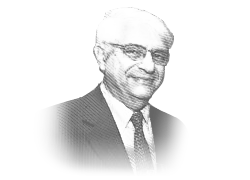Michael Macy left the farm in Tennessee where he grew up to attend Harvard, where he received his B.A. and later Ph.D, along with an M.A. from Stanford. He is currently Goldwin Smith Professor of Arts and Sciences and Director of the Social Dynamics Laboratory at Cornell, where he has worked since 1997. With support from the National Science Foundation, the Department of Defense, and Google, his research team has used computational models, online laboratory experiments, and digital traces of device-mediated interaction to explore familiar but enigmatic social patterns, such as circadian rhythms, the emergence and collapse of fads, the spread of self-destructive behaviors, cooperation in social dilemmas, the critical mass in collective action, the spread of high-threshold contagions on small-world networks, the polarization of opinion, segregation of neighborhoods, and assimilation of minority cultures. Recent research uses 509 million Twitter messages to track diurnal and seasonal mood changes in 54 countries, and telephone logs for 12B calls in the UK to measure the economic correlates of network structure. His research has been published in leading journals, including Science, PNAS, American Journal of Sociology, American Sociological Review, and Annual Review of Sociology.
Expertise
Current Research Interests
- Why liberals drink lattes (with Daniel DellaPosta and Yongren Shi)
- Using Twitter to study mobilization in Arab Spring (with Jon Kleinberg, Noona Oh, Michael Siemon, Silvana Toska, and Shaomei Wu, supported by NSF)
- How random perturbations can make social dynamics more predictable (with Milena Tsvetkova)
- Using social media to study the cultural and economic correlates of network structure (with Patrick Park and Bogdan State, supported by NSF)
- Whether social media attenuate or reinforce social class boundaries (with David Grusky and Bogdan State)
- Using an MMOG to study intergroup conflict and cooperation (with Dustin Chertoff and Milena Tsvetkova, supported by NSF)
- The puzzle of “three degrees of influence” (with Chris Cameron)
- Using Amazon book purchases to measure political and cultural polarization (with Fedor Dokshin and Yongren Shi)
- Using online experiments to study the willingness to “pay it forward” (with Milena Tsvetkova, supported by NSF)
Selected Publications & Presentations
- “Why Do Liberals Drink Lattes?” Daniel Della Posta, Yongren Shi, and Michael Macy American Journal of Sociology, March, 2015
- “The Mesh of Civilizations in the Global Network of Digital Communication” Bogdan State, Patrick Park, Ingmar Weber, and Michael Macy PLOS ONE, May 29, 2015
- “The Social Contagion of Anti-Social Behavior” Milena Tsvetkova and Michael Macy Sociological Science, Feb. 10, 2015
- “Big Theory: A Trojan Horse for Economics?” Michael Macy Review of Behavioral Economics 2014
- “The Signal Importance of Noise” Michael Macy and Milena Tsvetkova Sociological Methods and Research 2015
- “Digital Footprints: Opportunities and Challenges for Social Research” Scott Golder and Michael Macy Annual Review of Sociology, Vol. 40, 2014
- “The Social Contagion of Generosity” Milena Tsvetkova and Michael Macy PLOS One Feb. 13, 2014: 9(2): e87275
- “Statistical Mechanics and Social Sciences” Santo Fortunato, Michael Macy, Sidney Redner Journal of Statistical Physics 2013, 151:1-8
- “Critical Phenomena in Complex Contagions” Vladimir Barash, Chris Cameron, and Michael Macy Social Networks 2012, 34:451-61
- “Diurnaland Seasonal Mood Vary with Work, Sleep and Daylength Across Diverse Cultures” Scott Golder and Michael Macy Science 2011, 333:1878-81
- “Small Worlds and Cultural Polarization” Andreas Flache and Michael Macy Journal of Mathematical Sociology 2011, 34: 146-76
- “Local Convergence and Global Diversity: From Interpersonal to Social Influence” Andreas Flache and Michael Macy Journal of Conflict Resolution 2011, 55: 970-95
- “Network Diversity and Economic Development” Nathan Eagle, Rob Claxton, and Michael Macy Science 2010, 328: 1029-1031
- “Computational Social Science” David Lazer et al. Science 2009, 323: 712-723
- “The False Enforcement of Unpopular Norms” Rob Willer, Ko Kuwabara, and Michael Macy American Journal of Sociology 2009, 115:451-490
- “Neighborhood Chance and Neighborhood Change”Arnout Van de Rijt, David Siegel, and Michael Macy American Journal of Sociology 2009, 114:1166-80
- “Complex Contagions and the Weakness of Long Ties” Damon Centola and Michael Macy American Journal of Sociology 2007, 113:702-34
- “Culture, Identity, and Structure in Social Exchange: A Web-based Trust Experiment in the U.S. and Japan” Kuwabara, K., R. Willer, M. Macy, R. Mashima, S. Terai, and T. Yamagishi Social Psychology Quarterly, 2007, 70:461-79
- “Collective Action and the Empirical Content of Stochastic Learning Models” M. Macy and A. Flache American Journal of Sociology, 2007, 112: 1546-54

